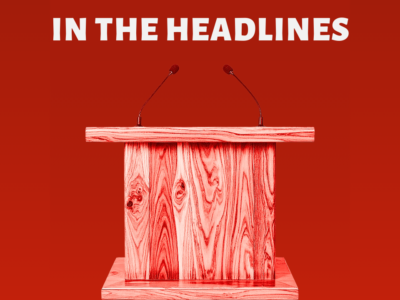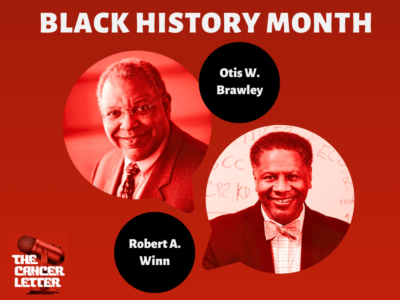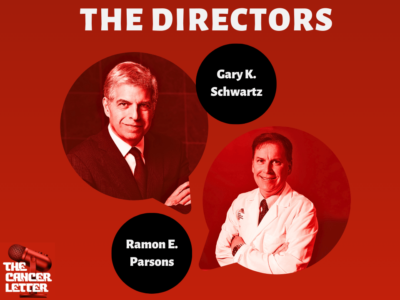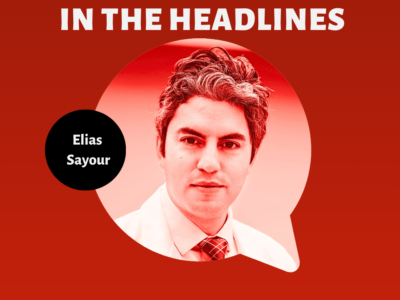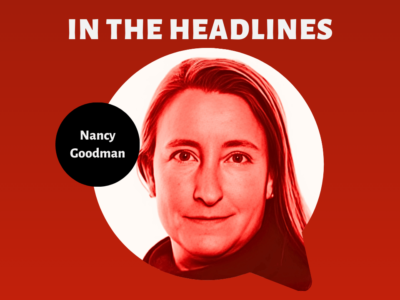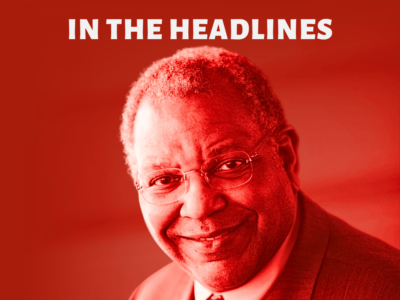With NCI Director Anthony Letai in Milan supporting his daughter, Julie, at the 2026 Winter Olympics, Douglas R. Lowy, principal deputy director of NCI, took on the job of delivering detailed remarks and fielding questions at the inaugural meeting of the NCAB’s ad hoc working group on Extramural Research Concepts and Programs.
One year of The Cancer Letter Podcast: “When you publish a story, there is, you hope, conversation.”
When The Cancer Letter founder Jerry Boyd carried the first print run of his little eight page oncology newsletter into an NCAB meeting in 1973, he certainly could not have predicted that, half a century later, his experiment would branch out into this thing called “podcasts.”
Growing up in inner-city Detroit, Otis Brawley had a thriving community made up of his parents, Jesuit priests, friends, and neighbors encouraging him that he could do anything he put his mind to.
Last week’s issue of The Cancer Letter included an obituary that the entire staff at The Cancer Letter had been dreading for years: Abdallah Abou Zahr, an oncologist at Roger Maris Cancer Center in Fargo, ND, died Jan. 23 of a liposarcoma after a five-year battle with the disease.
As NCI paylines drop to 4%, cancer centers are tapping into their institutional funds to provide “bridge funding,” typically in $50,000 to $100,000 increments, to enable investigators to keep their labs open until better times return—next year God willing.
In last week’s issue of The Cancer Letter, Jacquelyn Cobb, associate editor, wrote a story about the then-promising legislative package that was passed by the U.S. House of Representatives Jan. 22. At the time, the package was expected to pass in the Senate, provide funding for the federal government through fiscal year 2026, and prevent a government shutdown that looms Jan. 30.
“It's really, really important that every year since 1991, cancer mortality has dropped by a little bit, and it did again!” said Paul Goldberg, editor and publisher of The Cancer Letter. “Now, mortality is a good metric, age-adjusted mortality. As far as survival, well, that's not so good.”
“I believe in the concept of a universal cancer vaccine,” said Elias Sayour, a pediatric oncologist at the University of Florida. “I think if this fails in a prospective phase III trial, I still believe we can engineer a vaccine that works prospectively.”
On Dec. 19, the Mikaela Naylon Give Kids a Chance Act was blocked in the Senate by Sen. Bernie Sanders (I-VT) after receiving unanimous approval from the U.S. House of Representatives Dec. 1.
In a year that brought us new KRAS-inhibiting drugs, deepened our understanding of HER2 in breast cancer, and highlighted new potential for mRNA vaccines, the cancer field was also rocked by uncertainty of the future of research funding, equity in cancer delivery, and the integrity of review at FDA.






